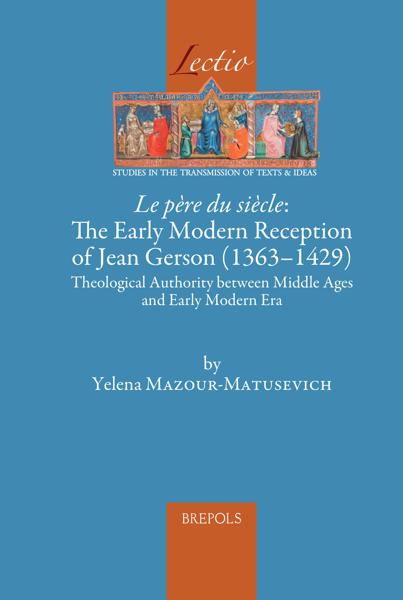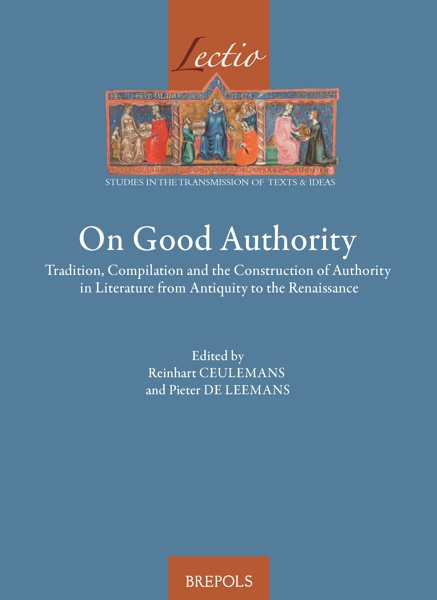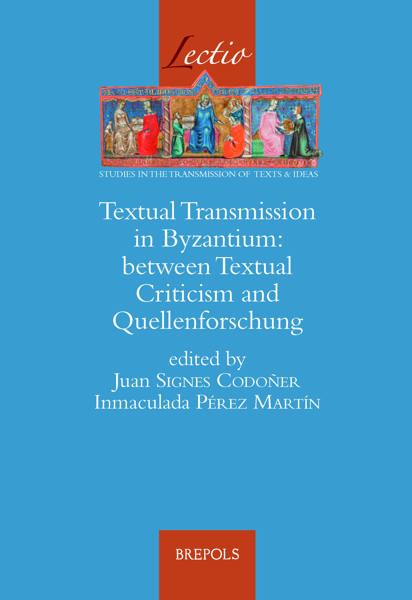
Le père du siècle: The Early Modern Reception of Jean Gerson (1363-1429)
Theological Authority between Middle Ages and Early Modern Era
Yelena Mazour-Matusevich
- Pages: 522 p.
- Size:156 x 234 mm
- Illustrations:1 b/w, 2 tables b/w.
- Language(s):English
- Publication Year:2023
- € 110,00 EXCL. VAT RETAIL PRICE
- ISBN: 978-2-503-60225-7
- Hardback
- Available
- € 110,00 EXCL. VAT RETAIL PRICE
- ISBN: 978-2-503-60235-6
- E-book
- Available
The first major investigation of Gerson’s reception before and during the Reformation, this book fills a gap in our understanding of his legacy and its formative role in early modern European history
“(…) Mazour-Matusevich has significantly contributed to Gerson’s scholarship. The book raises many important topics for further investigation and is crucial for understanding early modern religious traditions.” (Mirosława Hanusiewicz-Lavallee, in Journal of Jesuit Studies, 2, 2024, p. 343)
“This extensive volume treats Gerson in “the long fifteenth century” before examining his Protestant reception, Catholic reception, and reception in England and Scotland. The book notes the many editions and translations of Gerson’s works, including the copious edition compiled by Edmond Richer. No one has treated Gerson’s reception in such depth. (...) The book ends with a General Conclusion, noting how Gerson was followed, adapted, translated, and even rejected in the centuries following his death. Looking across Europe, there was no time when Gerson’s influence was entirely rising or falling, accepted or rejected. In all cases, the chancellor had an important role in the history of moral theology, pastoral care, and catechization.” (Thomas M. Izbicki, in The Medieval Review 24.10.08)
Yelena Mazour-Matusevich, PhD in French (1998), University of Illinois at Urbana-Champaign, USA, Doctorate in History (2018), EHESS, Paris, France, is currently Professor of French and History at University of Alaska Fairbanks. Author of Le siècle d’or de la mystique française: un autre regard, de Jean Gerson à Jacques Lefèvre d’Etaples (2004) and Saluting Aron Gurevich (2010), she has published extensively on Jean Gerson as well as on a variety of other topics and figures, including Nietzsche, Bakhtin, Calvin, Thomas More, Peter the Great and Camus.
This volume provides the first wide-ranging investigation of the post-fifteenth-century reception of Jean Gerson (1363–1429), chancellor of the University of Paris, guiding light of the Council of Constance, and arguably the most influential of late medieval theologians. His impact on early modern movements and thinkers paved the way for many developments still shaping our existence today. Besides his well-known influence in theology and church history, the chancellor left a significant impact in jurisprudence, human rights, art, music, education, literature, and even medicine; there is hardly an area of the humanities that did not pay at least some tribute to his authority, and there was almost no early modern political or religious movement in the West that neglected his name. Nearly all of the most prominent early modern intellectuals perceived him as an authority and father figure; an illustrious cohort of celebrities, including Thomas More, Martin Luther, King James I, Ignatius of Loyola, Girolamo Savonarola, Christopher Columbus, Bartholomew de Las Casas, and many others, relied on his writings and ideas. The geography of his late-fifteenth- and sixteenth-century reception reflects his pre-eminence, reaching from Spain to Scandinavia.
Acknowledgements
Introduction
Chapter 1. The Background: Gerson and the Long 15th Century
Part I. Early Reception in the Empire
Part II. Early Reception in France
Part III. Early Reception in Spain
Part IV. Early Reception in Italy
Part V. Early Reception in Sweden
Conclusion
Chapter 2. The Protestant Reception of Gerson
Introduction
Part I. Gerson’s Lutheran Reception
Part II. Reception in the Reformed Tradition
Conclusion
Chapter 3. Catholic Reception of Gerson
Introduction
Part I. Catholic Reception in the Empire
Part II. The Catholic Reception in the Low Countries
Part III. The Catholic Reception in France
Part IV. The Catholic Reception in Spain
Part V. The Early Jesuits
Part VI. The Council of Trent
Conclusion
Chapter 4. The Reception of Gerson in England and Scotland
Introduction
Part I. Gerson’s Theological Influence
Part II. The Scottish Connection
Part III. The Very Special Case: Gerson and Thomas More
Part IV. Gerson’s Influence on the Growth of Common Law in England
Part V. Synderesis and the Notion of Conscience in English Literary and Philosophical Traditions
Conclusion
General Conclusion
Gersons’s Future
Bibliography
Name Index




